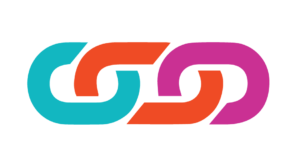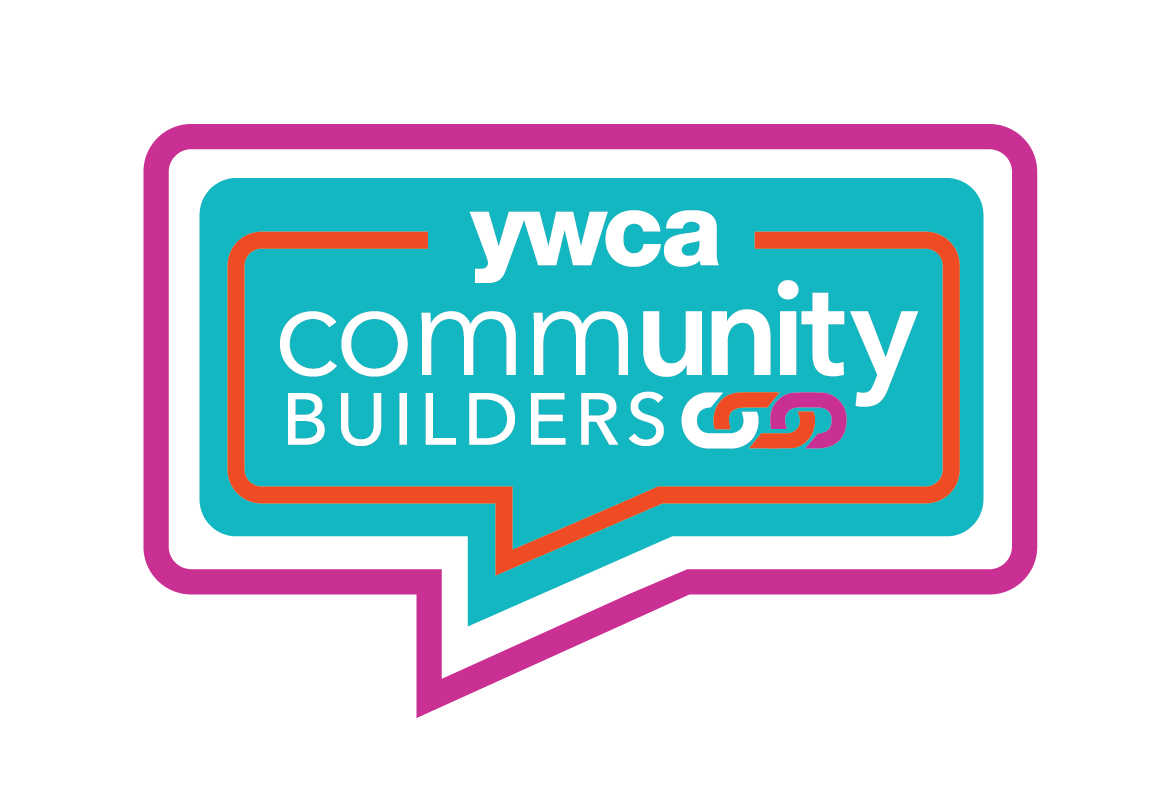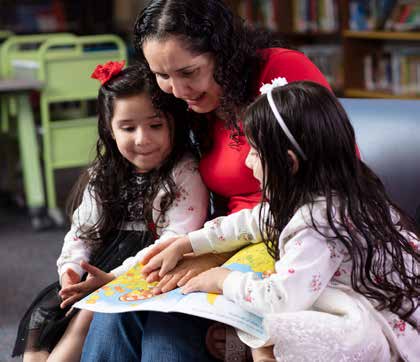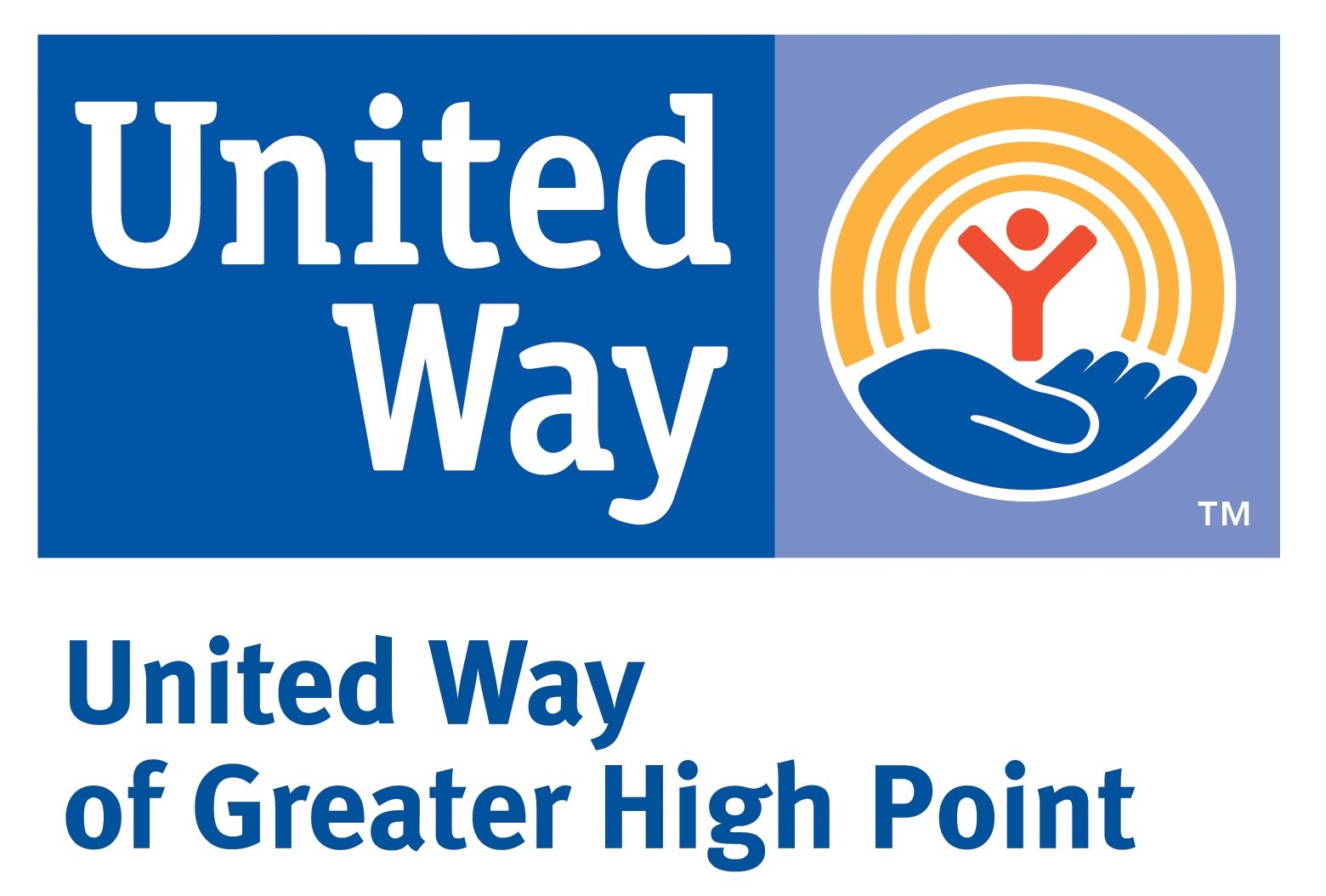YWCA HIGH POINT COMMUNITY BUILDERS

Community Stories: Reading Connections
Reading Connections never set out to end racism through literacy, but their team knows well that personal and systemic racial bias can prevent people from living their fullest lives.

While some organizations set their sights on eliminating racism to affect positive social change, other initiatives find themselves immersed in the antiracist cause simply because it is the only way to interrupt disparities. Reading Connections never set out to end racism through literacy, but their team knows well that personal and systemic racial bias can prevent people from living their fullest lives.
Reading Connections has demonstrated a fierce commitment to addressing the literacy gap that affects underserved populations in the Greensboro-High Point area in their commitment to eliminating a sometimes hidden “root cause” of exclusion that often affects our Black and Brown immigrant and refugee neighbors. More direct and formal antiracist policy could strengthen the impact of their work in our community, but their culture of acceptance and growth mindset gracefully reinforces antiracist values in their broad network of collaborators.
 Reading Connections is a well-established nonprofit with more than 30 years of community skill building. From basic literacy to Adult Basic Education certifications, English as a Second Language (ESOL) programming, Workforce Literacy, and Family Literacy, this organization works to provide clients with the tools they need to thrive. Whether the goal is to successfully pass the GED or be able to read a storybook to their grandchildren, Reading Connections focuses on helping adults reach their literacy goals.
Reading Connections is a well-established nonprofit with more than 30 years of community skill building. From basic literacy to Adult Basic Education certifications, English as a Second Language (ESOL) programming, Workforce Literacy, and Family Literacy, this organization works to provide clients with the tools they need to thrive. Whether the goal is to successfully pass the GED or be able to read a storybook to their grandchildren, Reading Connections focuses on helping adults reach their literacy goals.
Executive Director Mike Campbell and Shayla Hilton, the Adult Basic Education Coordinator at Reading Connections joined us to help explain how their unique approach to community engagement strengthens and unites a community not just through its literacy programs but by creating programs to help individuals master skills so they have access to more and better opportunities. Campbell works to ensure the community understands the multi-layered need for Adult Literacy, and Hilton works directly to ensure programming runs smoothly.
Campbell and Hilton are very clearly committed to building agency and self-efficacy in participants. Hilton explains, “Most of our students are now realizing they would like to complete school or get their GED, or they’ve been told at work that they cannot advance until they have their GED.” Reading Connections helps remove barriers to achieving these goals through their ABE and Workforce Literacy Program.
Campbell agrees with allowing the student’s goals to drive achievement, saying this approach gives students “the knowledge they need right now to improve their status. I think that’s why we’ve moved in that direction. Adult literacy isn’t about reading, it’s about living and living life to the fullest extent possible.”
Campbell continues, “Reading Connections’ programs and processes are designed to prepare the whole person to engage in the community, not just learn vocabulary and grammar. Reading connects people to families, strong communities, to work and to a job, and reading connects them to a future.”
Campbell and Hilton both agree that Reading Connections’ commitment to families, communities and the future is fundamentally antiracist work. Campbell states, “if Reading Connections wasn’t committed to antiracism, we would be very fragmented. Our organization requires cooperation, requires communication, requires diversity. We can call them requirements but they’re also expectations. People who don’t believe in the holistic well-being of an adult, they don’t belong with us.”
This commitment to collaboration and unity is reflected in some key organizational decisions, including diverse board appointments and a DEI Committee. Hilton explains the importance of these structures, saying, “our goal is not only diversity in leadership but that our tutors and our students would also share common ground. Our students are very diverse, with 120 languages from 123 different countries represented. We want our tutors to be as reflective of that as possible. We want our students to be able to see themselves reflected in whoever is working with them. That’s really important to us – to keep bringing everybody into the team.”
120 languages from 123 countries indicates a vividly diverse list of program recipients. Numbers like this present an opportunity for volunteer engagement at different organizational levels. In Guilford County, only 15% of nonprofits require DEI training to serve on a board. A shared set of language and values identified during a DEI training would empower a board to make compassionate, accurate, and fair judgements about organizational direction, particularly for a mission and vision that includes such a wide variety of program recipients usually relegated to the demographic category of “other.”
Additionally, literacy programming provides a unique opportunity to collect the kind of hard data funding entities love to see. Strategic disaggregation of participant information and progress can not only help Reading Connections share its outcomes, but also provide crucial information for antiracist problem solving led by similarly-aligned organizations. Knowing, for example, that it takes an average of 25 hours of instruction to achieve a certain goal, or that participants that miss more than three scheduled sessions are more likely to experience a certain negative outcome could help antiracist leaders find key points of leverage to building a more just community.
Building organizational capacity in data collection and communication can help eliminate the perceived “otherness” of non-native English speakers and those who gain literacy skills later in life, reducing stigma and empowering more individuals to see themselves succeeding in Reading Connection’s programming.
According to the Reading Connections team, there is a way forward in High Point. Campbell is adamant when he says, “as High Point residents, as High Point workers, whether we live here or not, we need to help build bridges to close the gap that has been created. How do we meet people halfway, or even three-quarters of the way, to bring equality and legitimacy to everything they do? Everybody has something to offer; there is a spot for everybody.”
Working toward this vision through holistic literacy education to help reduce the social and economic disparities our community faces continues to help build and strengthen High Point as it moves to a more equitable and antiracist community.
Community Stories: Reading Connections
Reading Connections never set out to end racism through literacy, but their team knows well that personal and systemic racial bias can prevent people from living their fullest lives.

While some organizations set their sights on eliminating racism to affect positive social change, other initiatives find themselves immersed in the antiracist cause simply because it is the only way to interrupt disparities. Reading Connections never set out to end racism through literacy, but their team knows well that personal and systemic racial bias can prevent people from living their fullest lives.
Reading Connections has demonstrated a fierce commitment to addressing the literacy gap that affects underserved populations in the Greensboro-High Point area in their commitment to eliminating a sometimes hidden “root cause” of exclusion that often affects our Black and Brown immigrant and refugee neighbors. More direct and formal antiracist policy could strengthen the impact of their work in our community, but their culture of acceptance and growth mindset gracefully reinforces antiracist values in their broad network of collaborators.
 Reading Connections is a well-established nonprofit with more than 30 years of community skill building. From basic literacy to Adult Basic Education certifications, English as a Second Language (ESOL) programming, Workforce Literacy, and Family Literacy, this organization works to provide clients with the tools they need to thrive. Whether the goal is to successfully pass the GED or be able to read a storybook to their grandchildren, Reading Connections focuses on helping adults reach their literacy goals.
Reading Connections is a well-established nonprofit with more than 30 years of community skill building. From basic literacy to Adult Basic Education certifications, English as a Second Language (ESOL) programming, Workforce Literacy, and Family Literacy, this organization works to provide clients with the tools they need to thrive. Whether the goal is to successfully pass the GED or be able to read a storybook to their grandchildren, Reading Connections focuses on helping adults reach their literacy goals.
Executive Director Mike Campbell and Shayla Hilton, the Adult Basic Education Coordinator at Reading Connections joined us to help explain how their unique approach to community engagement strengthens and unites a community not just through its literacy programs but by creating programs to help individuals master skills so they have access to more and better opportunities. Campbell works to ensure the community understands the multi-layered need for Adult Literacy, and Hilton works directly to ensure programming runs smoothly.
Campbell and Hilton are very clearly committed to building agency and self-efficacy in participants. Hilton explains, “Most of our students are now realizing they would like to complete school or get their GED, or they’ve been told at work that they cannot advance until they have their GED.” Reading Connections helps remove barriers to achieving these goals through their ABE and Workforce Literacy Program.
Campbell agrees with allowing the student’s goals to drive achievement, saying this approach gives students “the knowledge they need right now to improve their status. I think that’s why we’ve moved in that direction. Adult literacy isn’t about reading, it’s about living and living life to the fullest extent possible.”
Campbell continues, “Reading Connections’ programs and processes are designed to prepare the whole person to engage in the community, not just learn vocabulary and grammar. Reading connects people to families, strong communities, to work and to a job, and reading connects them to a future.”
Campbell and Hilton both agree that Reading Connections’ commitment to families, communities and the future is fundamentally antiracist work. Campbell states, “if Reading Connections wasn’t committed to antiracism, we would be very fragmented. Our organization requires cooperation, requires communication, requires diversity. We can call them requirements but they’re also expectations. People who don’t believe in the holistic well-being of an adult, they don’t belong with us.”
This commitment to collaboration and unity is reflected in some key organizational decisions, including diverse board appointments and a DEI Committee. Hilton explains the importance of these structures, saying, “our goal is not only diversity in leadership but that our tutors and our students would also share common ground. Our students are very diverse, with 120 languages from 123 different countries represented. We want our tutors to be as reflective of that as possible. We want our students to be able to see themselves reflected in whoever is working with them. That’s really important to us – to keep bringing everybody into the team.”
120 languages from 123 countries indicates a vividly diverse list of program recipients. Numbers like this present an opportunity for volunteer engagement at different organizational levels. In Guilford County, only 15% of nonprofits require DEI training to serve on a board. A shared set of language and values identified during a DEI training would empower a board to make compassionate, accurate, and fair judgements about organizational direction, particularly for a mission and vision that includes such a wide variety of program recipients usually relegated to the demographic category of “other.”
Additionally, literacy programming provides a unique opportunity to collect the kind of hard data funding entities love to see. Strategic disaggregation of participant information and progress can not only help Reading Connections share its outcomes, but also provide crucial information for antiracist problem solving led by similarly-aligned organizations. Knowing, for example, that it takes an average of 25 hours of instruction to achieve a certain goal, or that participants that miss more than three scheduled sessions are more likely to experience a certain negative outcome could help antiracist leaders find key points of leverage to building a more just community.
Building organizational capacity in data collection and communication can help eliminate the perceived “otherness” of non-native English speakers and those who gain literacy skills later in life, reducing stigma and empowering more individuals to see themselves succeeding in Reading Connection’s programming.
According to the Reading Connections team, there is a way forward in High Point. Campbell is adamant when he says, “as High Point residents, as High Point workers, whether we live here or not, we need to help build bridges to close the gap that has been created. How do we meet people halfway, or even three-quarters of the way, to bring equality and legitimacy to everything they do? Everybody has something to offer; there is a spot for everybody.”
Working toward this vision through holistic literacy education to help reduce the social and economic disparities our community faces continues to help build and strengthen High Point as it moves to a more equitable and antiracist community.
YWCA HIGH POINT COMMUNITY BUILDERS

About YWCA High Point
YWCA High Point is on a mission to eliminate racism, empower women, stand up for social justice, help families, and strengthen communities.
YWCA has been at the forefront of the most pressing social movements in High Point since 1920 — from voting rights to civil rights, from affordable housing to pay equity, from violence prevention to health care reform. Today, we combine programming and advocacy in order to generate institutional change in three key areas: racial justice and civil rights, empowerment and economic advancement of women and girls, and health and safety of women and girls.
Mission Statement
YWCA High Point is dedicated to eliminating racism, empowering women and promoting peace, justice, freedom and dignity for all.
ABOUT YWCA HIGH POINT
The YWCA has provided opportunities, programs, and support that is specific to my needs.
I’ve never been to an organization that is more accommodating and friendlier than the YWCA of High Point.
Good swimming, good fitness, good friends.
It’s convenient, has a great atmosphere, and a great selection of programs for the amount of pay.
The YWCA is that place that is like a third home to me. The people are super friendly, super welcoming, and super caring. That is what really makes the YWCA a place I love to be.
Everyone I’ve come in contact with at the YWCA is genuinely nice and helpful. They are attentive to my needs and I always feel comfortable at the YWCA.
Along with the calm and pleasant atmosphere, the YWCA’s fitness programs that are offered have improved my overall health.
I only have the highest things to say about the YWCA. The facilities and programs have met the specific needs of my wife and I and the people know us by name. Overall, it has been a great fit for us.
The YWCA is convenient for me and my schedule. They are always consistent in their programs and always hospitable.
I appreciate the reliability and availability of their programs and amenities.



